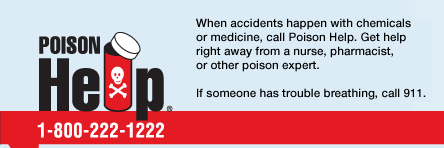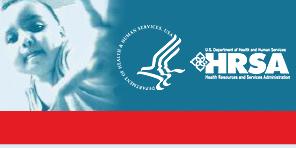

 |

|
1 HIPAA Letter Approved 2 Financial Stability Highlights 2 Call for Innovative Poison Programs/Activities 3 HRSA PCP Announces 2008 Grantee Meeting 3 Poison Help Campaign 3 The 1-800-222-1222 Number 4 Items of Interest to Grantees 4 Technical Assistance U.S. Department of Health and Human Services HRSA POISON CONTROL Lori Roche Maxine Jones Health Resources and Services HIPAA Letter Approved The Office of Civil Rights has approved a letter to be sent to the Poison Control Program (PCP) grantees. The letter seeks to provide assistance to Health Resources and Services Administration (HRSA) grantees by highlighting the HIPAA Privacy Rule provisions and preamble statements that directly address the issue of disclosing protected health information to Poison Control Centers (PCCs) for treatment activities. The letter, once signed by Joyce Somsak, the Healthcare Systems Bureau's Associate Administrator, will be mailed to each of the grantees. ASTHO/NACCHO/STIPDA Injury Prevention Web Cast Focused on Poison Control Efforts at the State, Local, and Federal Levels Moderated by Lori Roche and speakers, Dr. Monique Sheppard, PIRE, Dr. Len Paulozzi, CDC, Kay Sanford, North Carolina Division of Public Health Injury and Violence Prevention Branch, and Dr. Ed Krenzelok, Director of the Pittsburgh Poison Center The Association of State and Territorial Health Officials (ASTHO), the National Association of County and City Health Officials (NACCHO), and the State and Territorial Injury Prevention Directors Association (STIPDA) continued their topical injury prevention Webinar series in June with a Web cast that focused on the emerging public health crisis of unintentional poisonings and drug overdose deaths. Most often caused by prescription drugs, these overdose deaths have increased nearly 70% since 1999, with 20,000 deaths in 2004 alone. Because of these staggering numbers, as well as the many related pubic health and social problems exacerbated by drug misuse, abuse, and overdose, health officials at the Federal, State, and local levels are increasingly taking notice. The Web cast included presentations from national experts who presented the data and epidemiology of drug misuse, abuse, and overdose; described Federal and State heath agency surveillance and prevention initiatives; and highlighted activities and partnerships that State and local health agencies can engage in with poison control centers. Participants learned about the latest data and statistics, and were presented with cutting edge policy and prevention options to address this emerging public health epidemic. If you were unable to listen to the Web cast live, PowerPoint slides are available on ASTHO's Web site. Please see the teleconferences section (about halfway down the page) of the ASTHO injury prevention Web page to view presentation slides: http://www.astho.org/?template=innovative_programs.html. AAPCC Training on National Poison Data System The AAPCC held its first two HRSA funded National Poison Data System (NPDS(r)) Trainings prepared by Ciber on June 26-27 and July 23-24, 2007. The
trainings took place at the Baltimore County Community College on the Catonsville campus and in Berkeley Springs, CA. The training consists of a review of the NPDS(r), learning how to make reports, examining different aspects of toxicosurveillance, monitoring anomalies, and working with fatal cases. FINANCIAL STABILITY HIGHLIGHTS: Financial Stability Work Group We are pleased to report substantial progress on the activities of the work group. To recap, in February, during the Mid-Year Managers Meeting in Salt Lake City, interested PCC Directors and staff met to discuss the purpose and function of the proposed work group. The discussion was lively and confirmed the perceived value of exploring issues and challenges associated with PCC financial stability. There was general agreement that participation would require commitment and a significant investment of time and energy by members of the group. In April, the full work group participated in an organizational meeting in Bethesda, Maryland. Two high-interest areas of exploration were identified and subgroups were formed to address them. A summary of the April organizational meeting has been distributed to all PCCs. In the weeks since the April meeting, both subgroups have been active. The Finance Subgroup under Dr. Marsha Ford's leadership, has been exploring the development of an independent foundation to assist with PCC financial stabilization. This Foundation would work closely with American Association of Poison Control Centers (AAPCC), but would be an independent 501(c)(3) organization. Plans are underway for a "hands-on" working session on July 31/August 1 to develop a plan for incorporation and seeking tax-exempt status. An external technical consultant with extensive experience will facilitate the meeting. In addition to subgroup members, Federal program staff, representatives from the AAPCC and Poison Center Technical Assistance Resource Center (PC TARC) staff will participate. The mission of the foundation would be to keep America safe and healthy by enhancing support for U.S. poison center services. Sara O'Neal, Senior Vice President at Brakeley Briscoe, Inc. in Atlanta, GA is the consultant that has been retained. Sara has 29 years of experience as a senior level executive with a proven track record in designing and implementing development programs, major gift fundraising, capital campaign leadership, donor relationship building and management, membership building, direct marketing, board development, fiscal management, budget preparation and management, staff and volunteer management, team building, proposal writing, grant seeking, corporate sponsorships, and special events. Sara has worked with and for diverse groups such as Capital Consortium, the Atlanta Ballet, the Feminist Women's Health Center, the Sierra Club, and Green Pursuits, Inc. The Value-Added Subgroup under the direction of Dr. Robert Geller, has prepared a draft of a document entitled "The Value of the Poison Control Center," this 5 page document details the usefulness of poison centers, including providing information on what poison centers do for specific groups of stakeholders. It is hoped that this document once read and edited by all Poison Centers will provide the necessary uniform text that anyone can use to champion the cause of poison centers. The following is the preamble to the document " Poison centers (PCCs), often called "poison control centers," have long gone unrecognized as playing a major role in protecting the public health of our population. Perpetually functioning on a very limited patchwork of local, State and Federal funding, they have provided vital health services to the general public and health care professionals for over half a century. The PCC's provision of direct patient care services to residential callers, health care professionals and institutions alike is added value to the services provided by many governmental public health entities, health care providers, and commercial insurance carriers, just to name a few." In our next newsletter, we will continue to bring you up to date on the progress of both subgroups. Call for Innovative Poison Programs/Activities HRSA PCP Announces 2008 Grantee Meeting: Save the Date! HRSA PCP's 2008 Grantee Meeting will take place February 6, 2008 in Nashville, TN at the Doubletree. Please make plans to stay overanother night after the 2008 AAPCC Mid-Year Manager's Meeting. This all day grantee meeting is a requirement of the supplemental funds that each PCC will receive in their Notice of Grant Award (NGA). Volunteers for the program planning committee are now being sought, if you are interested, please send an e-mail to Lori Roche at lroche@hrsa.gov. Look for more information about this meeting in the coming months. Poison Help Campaign Thank you to everyone who provided constructive comments to the campaign and thank you to the technical review committee (Elena Juris, Gail Banach, Evelyn Waring, Jennifer Lowry and Karen Simone) for providing HRSA and Widmeyer with consolidated comments. All of the suggested technical changes and handwritten line edits will be incorporated into the final communications materials. We will seek AAPCC's technical expertise if any questions arise during the revision process. Taking into account the request of the AAPCC to retain the existing logo, Widmeyer will incorporate it into all of the communications materials. To accommodate the needs of those organizations who do not wish to use the skull and crossbones on their materials, we will make a separate version of the logo available without the skull and crossbones. The Best Practices and PCC Spotlight section will be renamed "Prevention Programs and Poison Center Spotlight." The Prevention Programs section will link to organizations (other than PCCs) that have programs targeting specific populations. The Poison Center Spotlight section will highlight PCC activities and provide contact information. To address AAPCC's concerns about the literacy level of materials, Widmeyer will bring in outside expertise to fully proof all materials intended for the general public and make any necessary adjustments to ensure all material is at the appropriate literacy level. To ensure downloadable materials can be printed affordably, Widmeyer will change all downloadable materials (tip sheets, FAQs, etc.) to a two-color format. To maintain design consistency, the brochure will remain a four-color item, while the audience-specific inserts will be in two colors. Additionally, Widmeyer will be working to address the suggested changes in the digital ads. We anticipate providing a final round of materials for review, with all changes incorporated, in early August. The 1-800-222-1222 Number Sabrina Jackson, HRSA National Toll-Free Number Telecom Manager, has been working with AT&T to develop customized billing usage history. During the first week of July, CDs displaying center-specific billing usage from August 2006 until June 4, 2007 were mailed to each Poison Center. Last month all billing conflicts were resolved. Please be aware that even though HRSA is paying for the 1-800-222-1222 and the language line services, the dollar value of these in-kind contributions to the poison centers are subject to an A-133 audit. For assistance with audit matters, please contact Maxine Jones at mjones@hrsa.gov. In recent weeks, a number of Poison Centers called to report a sudden loss of information specific to caller location on their phone display (caller ID). After speaking with AT&T they were able to correct the problem on a center-by-center basis. In addition, in the Virginia, Maryland, and DC metro area, Sprint/Nextel wireless customers who tried to connect to Poison Centers were repeatedly receiving a fast (circuit) busy signal. As an interim solution, AT&T has rerouted the traffic bypassing the local exchange company (Verizon) and after several test calls, all attempts are now completing. Poison Centers encountering similar problems are encouraged to contact Sabrina by telephone at (312) 886-1631, by fax at (312) 886-3770, by Cell at (301) 370-5315 or by e-mail at sjackson@hrsa.gov. Items of Interest to Grantees 10% Limitation for the Poison Control Center Stabilization and Enhancement Grant Programs HRSA is in the process of issuing a Federal Register Notice summarizing comments received in response to the request for comments regarding HRSA's plan to institute a 10% limitation on indirect costs. Status of Grant Applications Technical Assistance Again this year, technical assistance is available to PCCs through the Poison Center Technical Assistance Resource Center (PC TARC). In the next few days and weeks, Resource Center staff will contact each PCC to discuss your interest in utilizing technical assistance (TA) services to address new areas of interest or concern or to continue or complete ongoing activities. Based on the results of these contacts, TARC will use this information to prioritize need, develop staff resources and allocate TA funds to meet them. Stu Swayze and Monique Sheppard will direct the program along with Paul Jones, providing expert technical assistance. As in previous years, TARC will utilize external technical consultants to address areas of interest or concern identified by the HRSA PCP or by PCCs on an individual or system-wide basis. We encourage you to contact a member of the TARC staff at 301-755-2800 with recommendations about issues or challenges in which technical assistance would be helpful. To contact staff by e-mail please use any of the following e-mail addresses: Stu Swayze swayze@pire.org Monique Sheppard sheppard@pire.org Paul Jones jones@pire.org Denise Nguyen dnguyen@pire.org AAPCC Training on National Poison Data System Two additional trainings are taking place later in the year in Denver, CO (August 20-21) and Jacksonville, FL
(November 29-30). Visit the Adobe Reader Web site and follow the instructions to download the appropriate version of Adobe Reader for your operating system. |
|